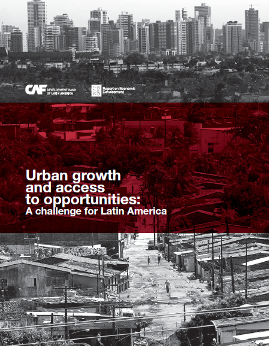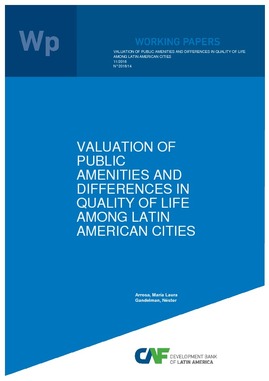Urban mobility for more and better opportunities
Abstract
Latin
America and the Caribbean (LAC) is one of the most urbanized
regions in the world, with 81% of its population residing in urban
zones.1,a
This trend is driven by the greater opportunities cities offer,
such as employment, education, healthcare, and social
activities. Moreover, the ability to access and provide these
services depends on the capacity for people and goods to move
within cities. In this regard, transportation is a key element in
enabling citizens to access these benefits, both in terms of
quantity and quality.
However, in LAC, significant gaps exist in terms of access to
and quality of urban mobility, compounded by various negative
externalities such as traffic congestion, road accidents, and
environmental pollution, the levels of which are considerable in
the region.
Ensuring access to quality of urban transport, while limiting its
adverse impacts, is crucial to guaranteeing that Latin Americans
and Caribbeans can safely, equitably, and sustainably access
the opportunities cities offer.
Through these actions, along with urban planning through
appropriate regulations, countries in the region will contribute
to achieving the Sustainable Development Goals (SDGs) set in
the United Nations 2030 Agenda.
Subject
Country / Region
Date
2024-11-12Cite this publication
Belongs to collection
Author
Italia, MatíasItems Relacionados
RED 2017. Urban growth and access to opportunities: a challenge for Latin America
This report seeks to understand the most critical development challenges currently faced by Latin American cities. Special attention is given to the ...
Valuation of Public Amenities and Differences in Quality of Life among Latin American Cities
We use a life satisfaction approach for the valuation of public goods and amenities in Latin American cities. We apply a homogenous database of seventeen ...
Renewed Energies: A just energy transition for sustainable development
This edition of the report underscores the need for a just energy transition in Latin America and the Caribbean, considering the realities of each country ...






